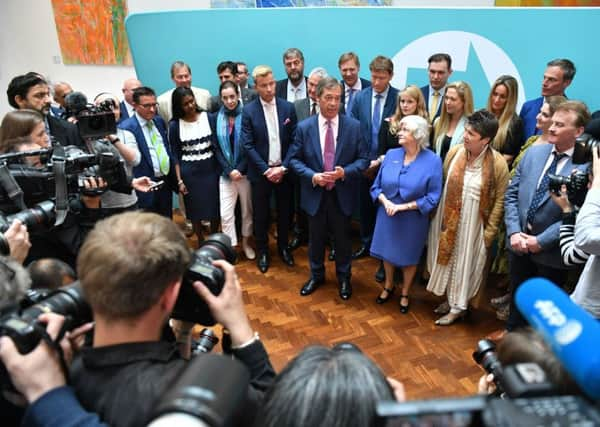A post-EU future that works for Yorkshire – Ian Martin


In other words, Yorkshire – like the UK as a whole – remains split on the best way forward in our relations with the EU with no clear majority for anything specific.
But is there any possible common ground?
My personal view remains that it is and always was in Yorkshire’s best interests to be at the heart of the EU. But I accept there is no democratic legitimacy for that unless there is a specific vote that way in what would be a third referendum on the UK’s role in European co-operation.
Advertisement
Hide AdAdvertisement
Hide AdIs there something that means leaving the EU (as per the majority of those that voted in 2016) but which also means getting a good deal in Yorkshire’s specific best interests?
Finding something with which everyone agrees would never reflect the reality of our region’s diverse views and perspectives, but is there anything that could find broad enough support for people to choose a specific party in any upcoming General Election?
I was intrigued by a recent piece from Yorkshire, as part of the Daily Mirror’s Britain Talks series, which brought together Bob Roberts, a Scarborough fisherman, with Razan Alsous, a Syrian refugee running her own business in Sowerby Bridge. After the meeting, both expressed their pride in Yorkshire and Bob reiterated that he still wanted out of the EU, in particular due to the Common Fisheries Policy, but that he wanted people to be ‘open-minded and embrace immigration’. I wonder what Bob would have done had he had the chance to vote for ideas like that.
At last week’s elections, I was surprised that no party specifically proposed respecting the 2016 referendum in our region by leaving the EU and also re-applying to join the European Economic Area (EEA, alongside Norway, Iceland and Liechtenstein) or to join EFTA (European Free Trade Association) and agree a bilateral deal to access the single market like Switzerland.
Advertisement
Hide AdAdvertisement
Hide AdThis would not be my first choice for Yorkshire’s future as it would involve less influence for Yorkshire over policies affecting us, but it is a reasonable compromise (retaining free movement and trade but leaving the EU and not being subject to the Common Agricultural or Fisheries Policies) that might tempt me – and maybe even Bob and Razan – to vote for a party here.
Retaining reciprocal free movement with EFTA member states would mean that people from Yorkshire who have earned their retirement in warmer, drier climates could continue to do so relatively simply.
It would mean that young people growing up in Yorkshire could continue to travel, study, work, live and love across the whole of the EFTA area.
Given there is much to do to address the London-centric nature of our economy, politics, media and culture, many young people will continue to need to find work outside Yorkshire in the near future at least – ensuring that free movement is not restricted to overheating London and the South East should be essential for any distinctively Yorkshire approach. Do we really want to take away the rights of people from Yorkshire?
Advertisement
Hide AdAdvertisement
Hide AdBut free movement is not a one-way thing. Alongside the benefits for those from Yorkshire, so much of what makes Yorkshire the place it is, so much of what makes us proud to call this place home is a direct result of taking pride in opening our arms and welcoming people from elsewhere.
Some people in Yorkshire would still oppose such an approach but could there be a majority in Yorkshire of people who voted remain (and so enthusiastically or otherwise, accepted free movement as part of the EU) and those who still want to leave but are positive about immigration?
It might seem most natural for the Yorkshire Party to offer a specifically Yorkshire approach. And their chair expressed support for a Swiss-style relationship with the EU in a pre-election statement. But their position has always been on all policy issues to enable candidates to freely express any view as long as they believe it in the best interests of Yorkshire.
Taking the distinctively Yorkshire approach outlined above would perhaps be an opportunity for other candidates and/or parties in the region. Will anyone take it?
Ian Martin is a founder member of We Share The Same Skies, a West Yorkshire-based regional democracy network.